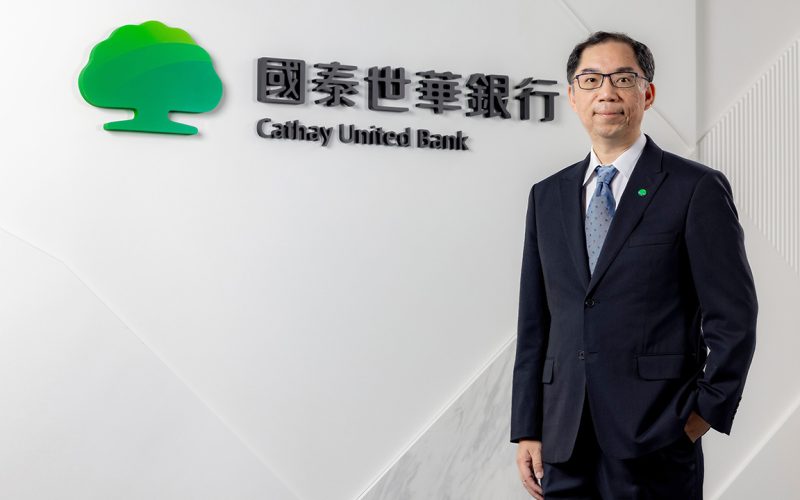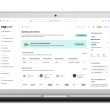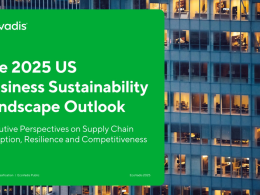In a significant stride toward greater transparency and responsible banking, Cathay United Bank Co., Ltd. (CUB) has earned the prestigious Gold award for Asia’s Best Sustainability Report (First Time) at the Asia Sustainability Reporting Awards (ASRA) 2025. We sat down with Mr. Sean Chang, the bank’s Chief Risk Officer, for an exclusive conversation on what this milestone means for the institution and how it sets the tone for the future.
“This report is more than just a publication—it’s a reflection of our values, our achievements, and our vision for a sustainable future,” shared Chang. As sustainability reporting becomes more data-driven and scrutinized, Mr. Chang believes that transparency, comparability, and anti-greenwashing measures will define the next phase of corporate reporting. Read on as we explore the making of CUB’s award-winning report, the lessons learned, and how the bank plans to stay ahead in the evolving ESG landscape.
Why does your company publish a sustainability report?
This report is the first Sustainability Report issued by Cathay United Bank (CUB) , marking a significant milestone in our commitment to sustainability. We aim to ensure that our stakeholders know CUB’s proactive actions and goals in sustainability, demonstrating our commitment and visions to sustainability development.
Our Sustainability Report plays a crucial role in CUB’s engagement with stakeholders and serves as a vital instrument for assessing and showcasing our sustainability advancements. By publishing the Sustainability Report, we respond to stakeholders such as regulatory authorities, investors, clients, employees, and communities regarding our sustainability initiatives. Additionally, the process of compiling the report offers a valuable chance to reflect on the CUB’s achievements and performance over the past year. This reflection, in turn, provides essential insights for developing future sustainability strategies and planning targets.
Which part of sustainability reporting did you find to be the most challenging?
Since this is our first Sustainability Report, it is crucial to showcase the efforts and achievements of various departments during the writing process. We must incorporate the most representative highlights of CUB into the report within a limited timeframe. Additionally, this report needs to comply with regulatory requirements. The rules for sustainability reports are constantly evolving, with different standards and requirements from frameworks such as GRI, TCFD, SASB, and IFRS.
Considering the above, meeting these requirements while ensuring clarity and readability to make the report an excellent communication tool is indeed a significant challenge for us. However, it also presents a valuable learning opportunity for CUB.
How has your company benefitted from disclosing sustainability performance?
For us, publishing the Sustainability Report not only provides an additional channel to communicate with stakeholders but also serves as a dedicated medium to showcase our proactive efforts and achievements in aligning with Cathay Financial Holdings’ three sustainability pillars—Climate, Health, and Empowerment.
Additionally, the publication of the report aims to comply with regulatory requirements and international trends, while also enhancing the transparency of our sustainability information, improving our corporate image, and elevating the brand value of CUB.
What steps do you take to ensure that your sustainability report is reliable and credible?
To ensure the accuracy and credibility of the report, we have compiled it in accordance with the 2021 version of the GRI Sustainability Reporting Standards issued by the Global Reporting Initiative (GRI), and aligned it with the United Nations Sustainable Development Goals (SDGs). The report also adheres to the “Operating Procedures for Listed Companies to Compile and Report Sustainability Reports” issued by the Taiwan Stock Exchange Corporation, the SASB Standards issued by the Sustainability Accounting Standards Board, and the recommendations for disclosure from the Task Force on Climate-related Financial Disclosures (TCFD) under the Financial Stability Board (FSB). Additionally, this report follows the S1 “Sustainability Disclosure Standards” under the International Financial Reporting Standards (IFRS).
Furthermore, we have engaged PwC to perform independent limited assurance on selected sustainability performance indicators reported according to the GRI Standards. This assurance was conducted in accordance with Statement of Assurance Engagement Standards No. 3000 ‘Assurance Engagements Other than Audits or Reviews of Historical Financial Information’ issued by the Accounting Research and Development Foundation of the Republic of China (which references ISAE 3000 (Revised)).
How do you think sustainability reporting will evolve in the next five years?
In recent years, international organizations and regulatory authorities have increasingly tightened regulations on sustainability reporting. Investment institutions, NGOs, and the general public also have more professional and stringent standards for companies in disclosing sustainability information. Different regions or countries have varying timelines for the formal implementation of sustainability reporting regulations, but there is a clear trend towards greater emphasis on anti-greenwashing, comparability of information, and accuracy of information.
Moreover, with advancements in technologies such as artificial intelligence and big data analytics, not only has it become more convenient for companies to compile information, but it has also allowed external parties to more rigorously trace information and review the progress of corporate commitments. This has heightened the importance of sustainability reporting for both companies and stakeholders.
What advice would you offer to other companies striving to enhance their sustainability reporting practices and earn recognition in initiatives like the Asia Sustainability Reporting Awards?
Following internationally recognized frameworks such as GRI, IFRS, SASB, TCFD, and TNFD to compile sustainability reports ensures that companies set feasible and comparable goals and policies. It is crucial to ensure the accuracy of the disclosed information. Ultimately, these efforts should demonstrate the company’s sustainability impact in the report.



















